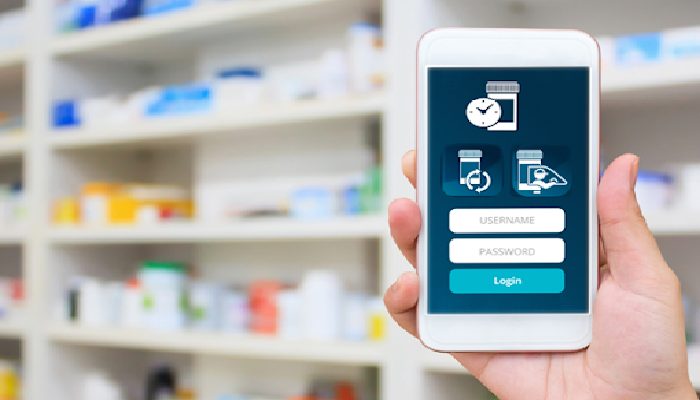In today’s fast-paced digital world, where convenience reigns supreme, pharmacy apps have become game-changers, providing a plethora of advantages for both customers and businesses. These applications have revolutionized our interaction with pharmacies, offering a seamless and efficient experience at our fingertips.
In this article, we will explore the pharmacy app development in 2023, delving into their functions, benefits, different variations, development costs, and showcasing successful examples that have garnered positive user feedback. So, let’s dive right in!
The Significance of Pharmacy Apps in 2023
Pharmacy apps have gained increasing relevance in 2023 due to the widespread usage of smartphones and the growing demand for accessible healthcare services. These apps act as virtual pharmacies, empowering users to conveniently access a wide range of healthcare products and services from the comfort of their own homes. From ordering prescription medications to scheduling appointments with healthcare professionals, pharmacy apps have become indispensable tools in managing one’s health and well-being.
Grasping the Functions of Pharmacy Apps
Pharmacy apps have revolutionized our engagement with pharmacies by offering a seamless and efficient experience through a diverse array of functions. Let’s delve deeper into the functionalities of these innovative applications:
Prescription Management
A key function of pharmacy apps is the streamlining of the prescription management process. Users can effortlessly upload their prescriptions and order refills directly through the app, eliminating the need for physical visits to the pharmacy. This saves precious time and effort, with the app securely storing prescription information for easy access whenever necessary.
Medication Reminders
Maintaining adherence to prescribed medications is crucial for effective treatment. Pharmacy apps address this challenge by providing medication reminders. Users can set up personalized alerts to ensure timely medication intake. These reminders can be customized to align with individual preferences, ensuring doses are never missed and treatment plans are accurately followed.
Product Catalogs
Pharmacy apps offer comprehensive catalogs of healthcare products, making it convenient for users to browse and purchase items. From over-the-counter medications to personal care products, users have access to a wide range of items. Detailed descriptions, images, and user reviews help users make informed decisions regarding their specific needs.
Online Consultations
Many pharmacy apps provide the convenience of online consultations with licensed healthcare professionals, in addition to prescription management and product ordering. Through secure video or chat platforms within the app, users can seek medical advice, ask questions, and receive recommendations from the comfort of their own homes. This feature proves particularly beneficial for minor ailments or follow-up consultations, saving time and reducing the need for in-person visits.
Health Monitoring
Some pharmacy apps incorporate features that enable users to monitor their health and track vital signs. Users can input and track various health metrics such as blood pressure, glucose levels, weight, and sleep patterns. This functionality allows individuals to gain a better understanding of their overall health, empowering them to make informed decisions and manage chronic conditions more effectively.
Delivery Services
Pharmacy apps often provide convenient home delivery services for medications and healthcare products. Users can place their orders through the app and have them delivered directly to their doorstep. This eliminates the need for travel and waiting in queues at the pharmacy, which proves especially beneficial for individuals with mobility issues, busy schedules, or those residing in remote areas.
Advantages of Pharmacy Apps

The convenience offered by pharmacy apps is unparalleled, benefiting both customers and businesses. Let’s explore the advantages:
For Customers
- 24/7 Accessibility: Pharmacy apps provide round-the-clock access to services, breaking free from the limitations of traditional pharmacy operating hours.
- Time and Effort Savings: With just a few taps, customers can order medications and healthcare products, saving valuable time and effort.
- Enhanced Medication Adherence: Medication reminders and easy prescription refills contribute to improved adherence to treatment plans, resulting in better health outcomes.
- Discreet and Confidential: Pharmacy apps offer a discreet and confidential platform for discussing health concerns, ensuring privacy.
For Businesses
- Increased Reach and Customer Base: Pharmacy apps expand the reach of pharmacies beyond physical locations, attracting customers from a wider geographic area.
- Improved Customer Engagement: These apps facilitate direct communication with customers, allowing for personalized recommendations and targeted promotions.
- Efficient Inventory Management: By tracking customer preferences and purchase patterns, pharmacy apps enable better inventory management, minimizing wastage and optimizing stock levels.
- Enhanced Brand Loyalty: Seamless user experiences and convenient services through pharmacy apps foster customer loyalty and encourage repeat business.
Types of Pharmacy Apps
Pharmacy apps come in various forms, catering to different needs. Some common types include:
Chain Pharmacy Apps: Developed by large pharmacy chains to provide a consistent experience across multiple locations.
Independent Pharmacy Apps: Tailored for independent pharmacies to offer personalized services and establish a niche presence.
Health Platform Apps: Integrating multiple healthcare services, these apps provide comprehensive solutions, including pharmacy services.
Cost of Developing a Pharmacy App
The cost of developing a pharmacy app can vary depending on factors such as complexity, features, design, and platform compatibility. On average, a pharmacy app can range from several thousand to tens of thousands of dollars. However, the long-term benefits and increased business opportunities make it a worthwhile investment for pharmacies.
Successful Examples and User Feedback
Several pharmacy apps have garnered praise for their seamless functionality and user-friendly interfaces. Notable examples include:
Medscape: This app offers a wide range of features, including medication information, drug interaction checking, and medical news updates, making it a valuable resource for healthcare professionals and patients alike.
1mg: Known for its extensive database of medicines and healthcare products, 1mg has gained popularity among users for its reliable information and prompt delivery services.
Walgreens: The Walgreens app has been commended for its user-friendly interface, convenient prescription refills, and integration with loyalty programs, ensuring a rewarding experience for customers.
In Conclusion
In conclusion, pharmacy apps have emerged as crucial tools in the healthcare industry, revolutionizing convenience and accessibility for customers while offering numerous benefits for businesses. Their relevance in 2023 is evident as they continue to reshape our interaction with pharmacies. With their convenience, comprehensive functions, and potential for better health outcomes, pharmacy apps are here to stay, bridging the gap between customers and the vital services they require.
So why wait? Embrace the power of pharmacy apps and experience a new era of convenience in managing your healthcare needs!
